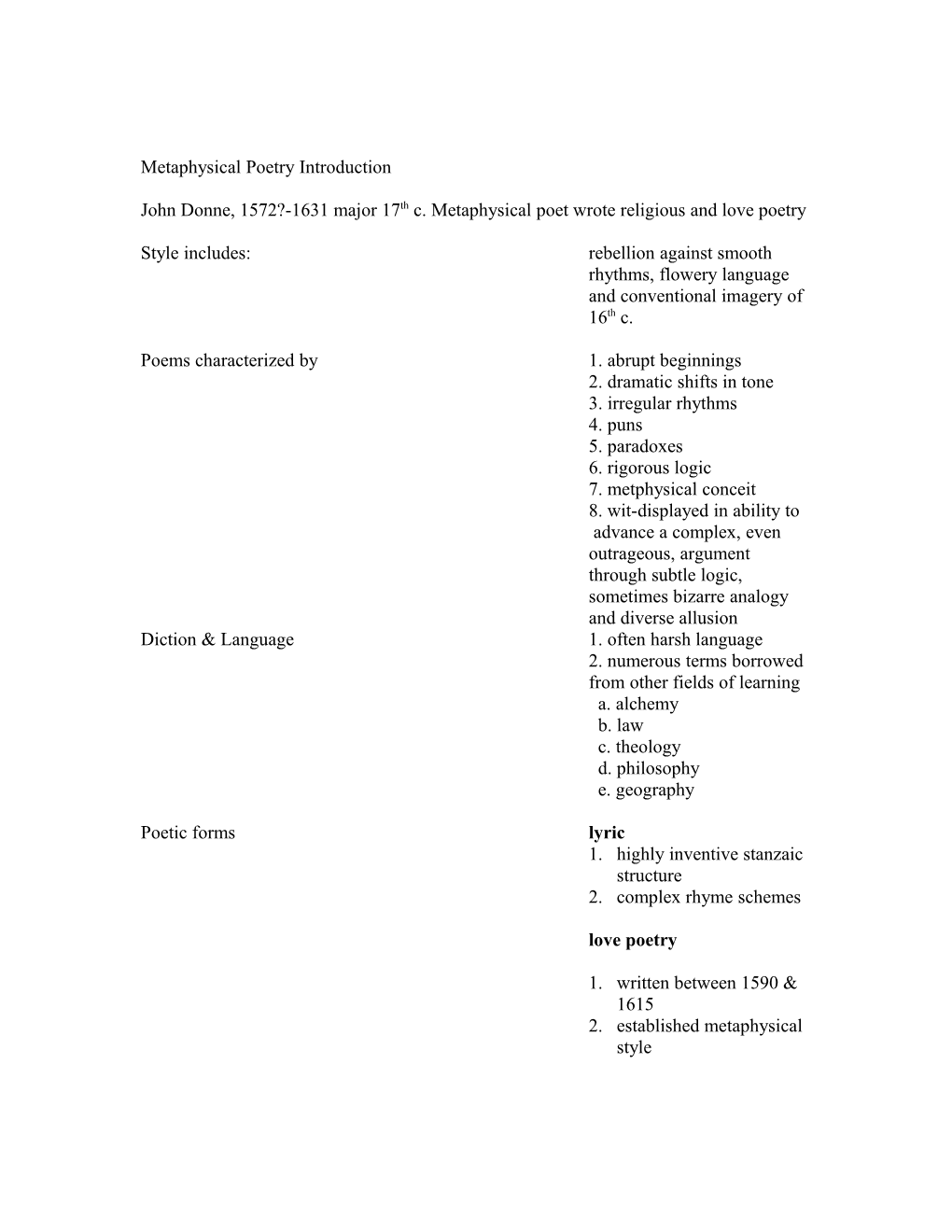Metaphysical Poetry Introduction
John Donne, 1572?-1631 major 17th c. Metaphysical poet wrote religious and love poetry
Style includes:rebellion against smooth rhythms, flowery language and conventional imagery of 16th c.
Poems characterized by1. abrupt beginnings
2. dramatic shifts in tone
3. irregular rhythms
4. puns
5. paradoxes
6. rigorous logic
7. metphysical conceit
8. wit-displayed in ability to
advance a complex, even outrageous, argument through subtle logic, sometimes bizarre analogy and diverse allusion
Diction & Language1. often harsh language
2. numerous terms borrowed from other fields of learning
a. alchemy
b. law
c. theology
d. philosophy
e. geography
Poetic formslyric
- highly inventive stanzaic structure
- complex rhyme schemes
love poetry
- written between 1590 & 1615
- established metaphysical style
- often outrageous and overflowing with images and allusions
- as a group, suggest that passion is wonderful and dangerous and love is a mystery, much like religion
- employ religious diction, similes and metaphors; love is treated as sacred and holy
- implies that lovers can and should be self-sufficient and separate from the public world
religious poetry
- religious verse maintains characteristics of love poetry, but shifts from human passion to divine love
- in Holy Sonnets traditional poetic form associated with love poetry used:
a. human love and divine grace considered - techniques of religious meditation often used
- focus is first on a specific time or event; then meaning of event is considered in relation to speaker’s spiritual state
Literary Devicesparadox- an apparent contradiction that, in context, reveals a truth
Effective because it surprises reader and causes he/she to think about the deeper meaning revealed
Examples:
“When thou weep’st unkindly kind,/My life’s blood doth decay.”
“…imprison me, for I,/Except you enthrall me, never shall be free.”
“That I may rise, and stand, overthrow me, and bend/ Your force to break…and make me new.”
metaphysical conceit-an extended, fanciful metaphor that makes a surprising or unexpected comparison
sometimes elaborate images and sometimes just a line or two
Examples:
“Our two twin souls therefore, which are one,/Though I must go, endure not yet/ A breach, but an expansion/Like gold to airy thinness beat.”
“If they be two, they are two so/ As stiff twin compasses are two;/Thy soul, the fixed foot, makes no show/To move, but doth, if th’ other do.”
Hedges/AP Lit/2015
